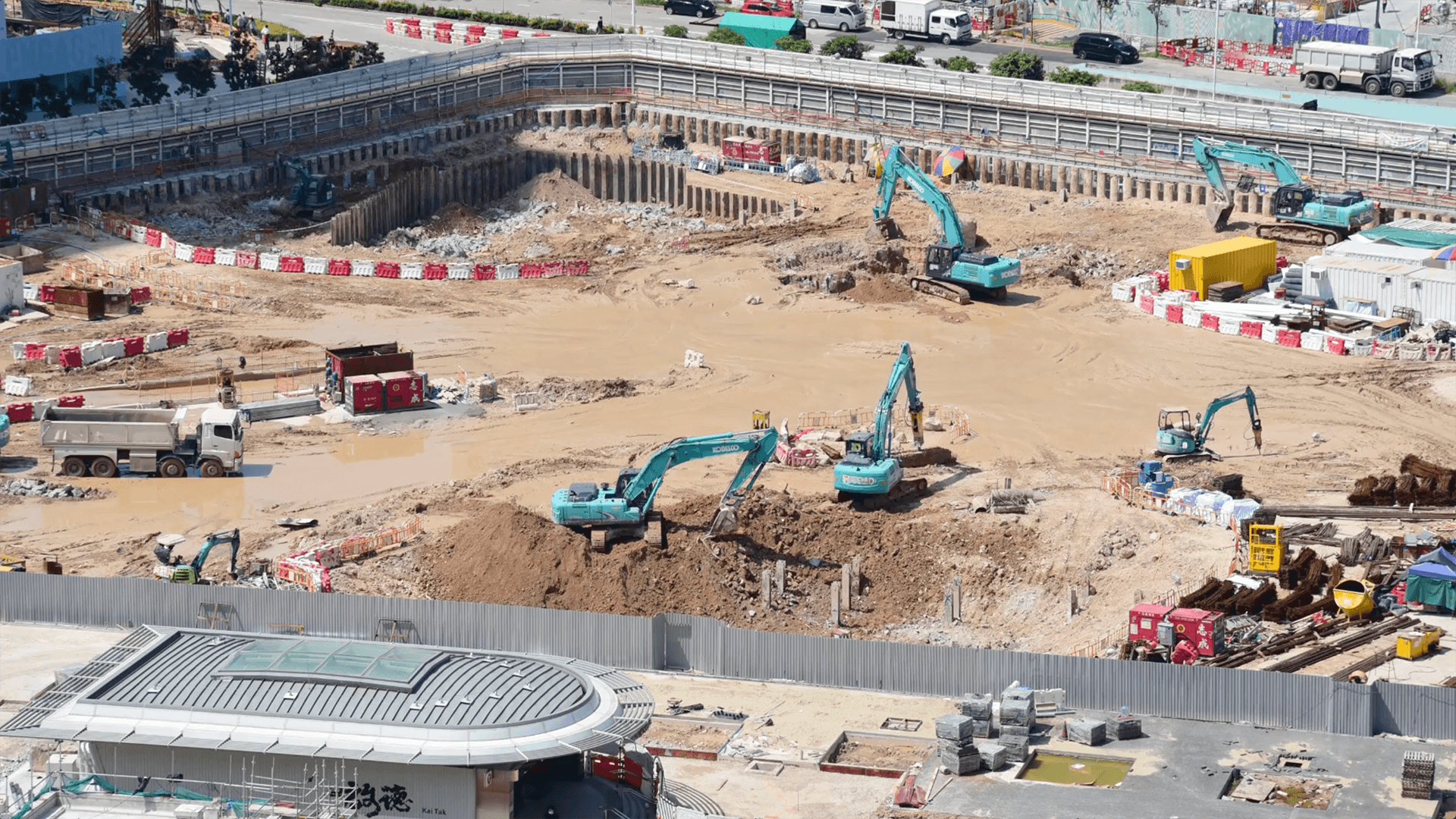Emerging Roles in Heavy Civil Engineering: What Recruiters Are Looking for in 2026 and Beyond
The construction site of tomorrow won't look like the one your grandfather worked on.
02/02/2025
Digital twins float above physical structures, autonomous equipment operates with precision, and data flows seamlessly from sensors embedded in concrete. As heavy civil engineering embraces this technological revolution, entirely new roles are emerging, and the race is on to find professionals who can fill them.
The New Faces of Future Infrastructure
Welcome to the future of infrastructure, where traditional engineering expertise meets cutting-edge technology, creating career opportunities that didn’t exist five years ago.
Digital Infrastructure Engineers- these hybrid professionals design IoT networks, manage live data streams from materials and machines, and ensure seamless integration between digital and physical infrastructure. Equal parts engineer, systems architect, and data strategist.
Autonomous Equipment Specialists- represent the evolution of heavy machinery operation. As self-driving excavators and AI-powered cranes become standard, these specialists program, monitor, and maintain autonomous systems while ensuring safety protocols adapt to unmanned operations. They combine traditional mechanical knowledge with robotics and AI expertise.
Construction Data Analysts- turn raw data into smart decisions. They interpret vast datasets from sensors, equipment, weather stations, and project management systems to optimize schedules, prevent delays, and improve site safety. These professionals speak both construction and analytics fluently.
Sustainability Integration Managers- green isn’t a buzzword, it’s a business imperative. These specialists ensure projects meet increasingly stringent environmental requirements while maintaining profitability. They navigate complex regulations, implement green technologies, and coordinate with environmental scientists to minimize ecological impact throughout project lifecycles.
Virtual Design Coordinators- manage the digital representation of projects before ground is broken. Using advanced BIM software and virtual reality platforms, they detect conflicts, optimize designs, and facilitate collaboration between stakeholders across multiple disciplines.
What We’re Really Looking For
It’s not just about qualifications anymore- it’s about mindset.
Today’s recruiters seek professionals who demonstrate adaptive thinking, the ability to learn new technologies quickly and apply them practically. The half-life of technical knowledge is shrinking, making learning agility more valuable than static expertise.
Cross-disciplinary fluency has become essential. The most valuable professionals speak multiple “languages”: engineering, tech, sustainability, data. They bridge the gap between field and office, analogue and digital. The most sought-after candidates understand how traditional engineering principles interact with digital technologies, environmental considerations, and data analytics.
Systems thinking separates good hires from great ones. These professionals see how changes in one area ripple through entire projects, anticipating consequences and optimizing holistically rather than just within their specialty.
The Skills That Open Doors
Today’s talent needs more than hard hats and high-vis, programming literacy isn’t optional anymore.
Whether it’s Python for data analysis, JavaScript for web interfaces, or specialized software for equipment control, basic coding skills have become as fundamental as blueprint reading once was.
Digital twin proficiency with platforms like Bentley MicroStation, Autodesk Construction Cloud, or Trimble Connect demonstrates readiness for the connected construction environment where physical and digital worlds merge.
IoT and sensor technology knowledge helps candidates understand how modern infrastructure monitors itself, from strain gauges in bridges to environmental sensors in tunnels.
Regulatory navigation skills become crucial as projects must satisfy increasingly complex environmental, safety, and digital security requirements simultaneously.
Where Experience Meets Innovation
The most compelling candidates combine traditional construction knowledge with emerging technological capabilities.
- A structural engineer who also understands machine learning algorithms.
- A project manager who can interpret sensor data alongside Gantt charts.
- An equipment operator who programs autonomous systems.
These hybrid professionals command premium salaries because they bridge the gap between established industry practices and innovative approaches. They’re redefining what leadership looks like in construction.
Building Tomorrow’s Teams Today
The heavy civil engineering sector stands at an inflection point. Companies that invest in these emerging roles now will lead the industry’s next decade, while those that wait risk falling behind competitors who embrace technological integration.
For ambitious professionals, it’s a moment of massive opportunity. Career paths are expanding fast, with roles that didn’t exist five years ago now becoming mission-critical. Traditional career paths are expanding exponentially, with technology creating new specializations and leadership roles that combine engineering expertise with digital innovation.
The question isn’t whether these roles will become mainstream, it’s whether you’ll be ready when they do.
Ready to shape the future of heavy civil engineering?
Harris & Co connects visionary companies with the hybrid professionals who will define tomorrow’s construction industry. Let us help you build the teams that will build the world.


